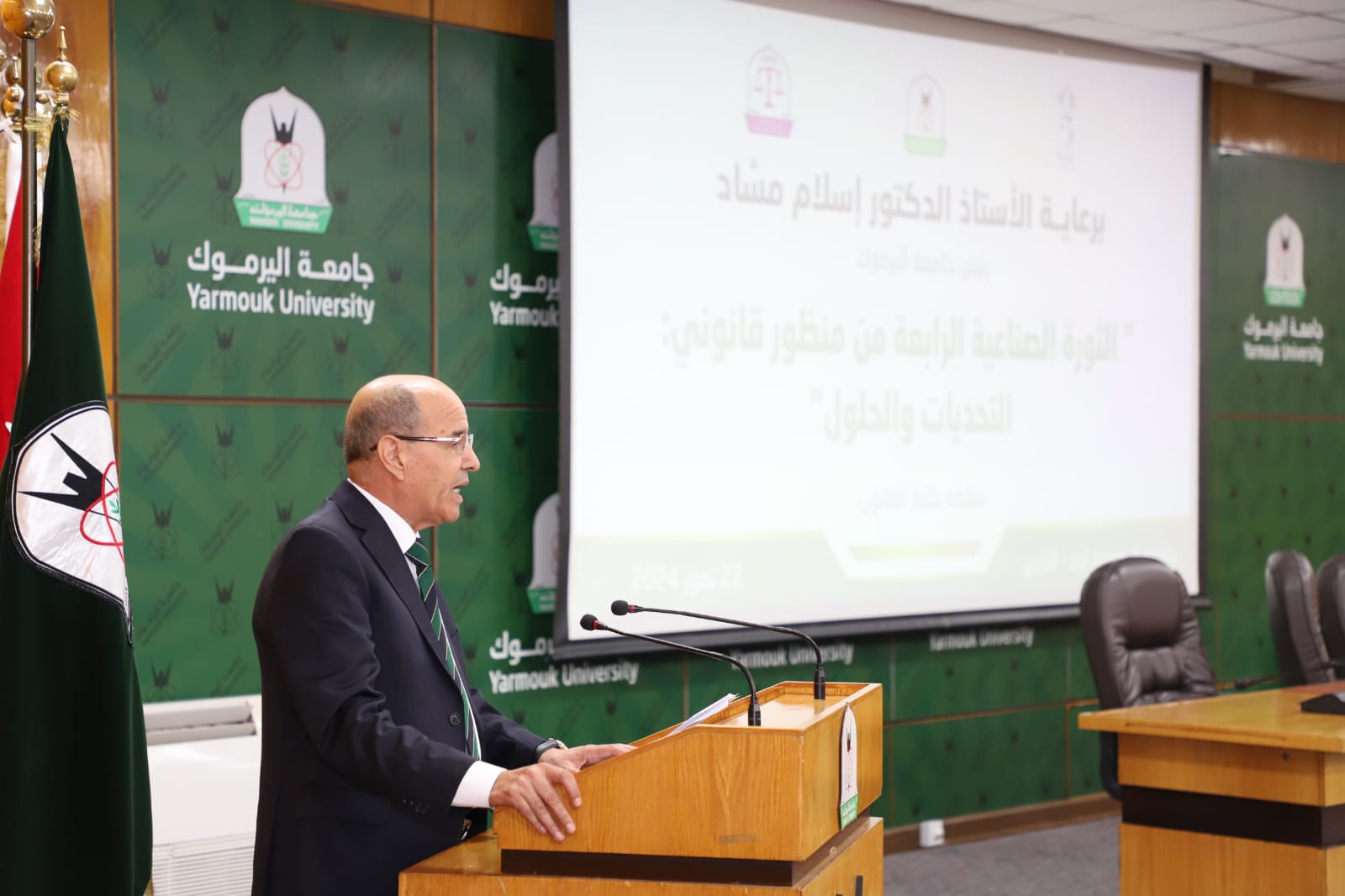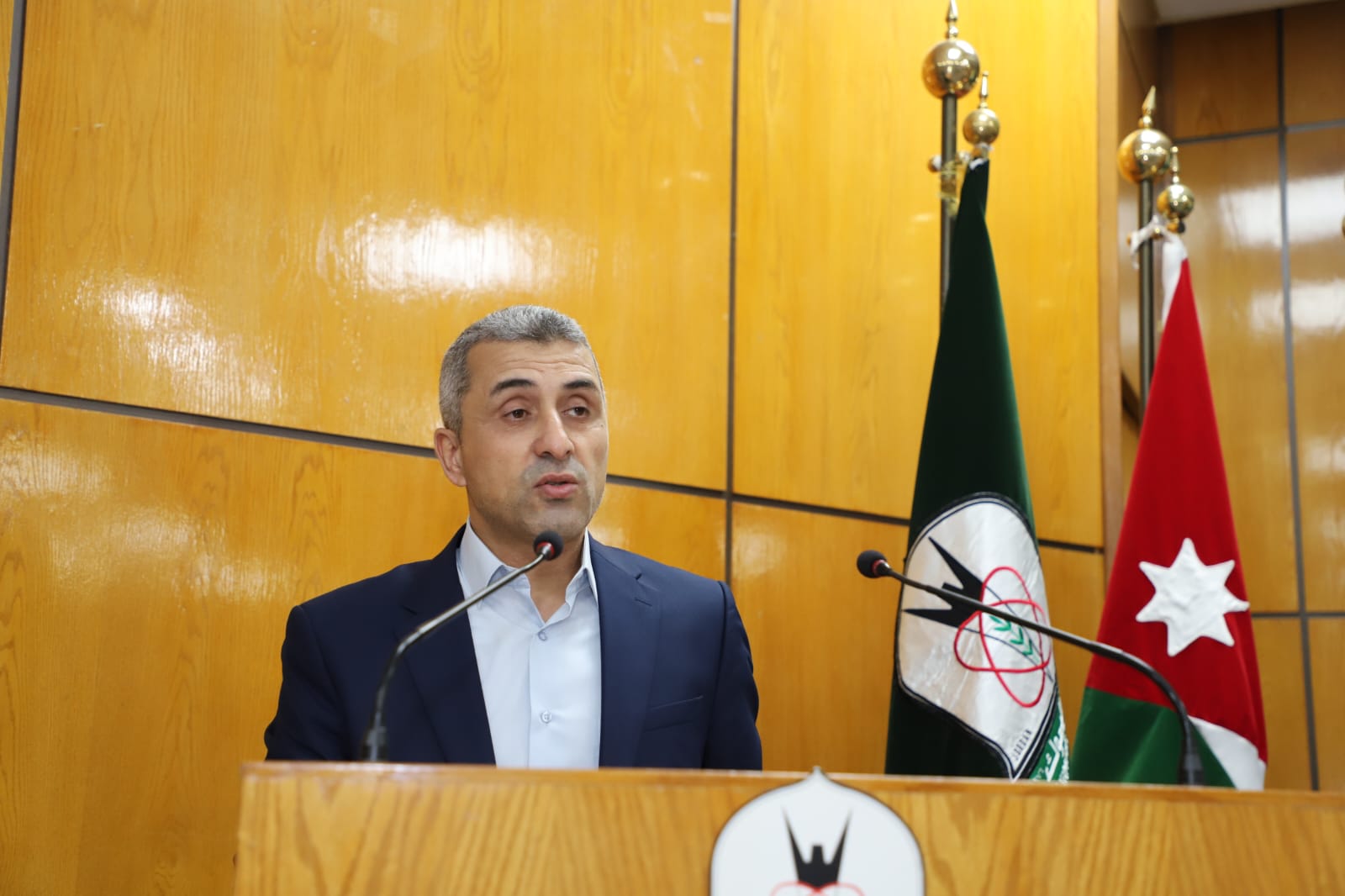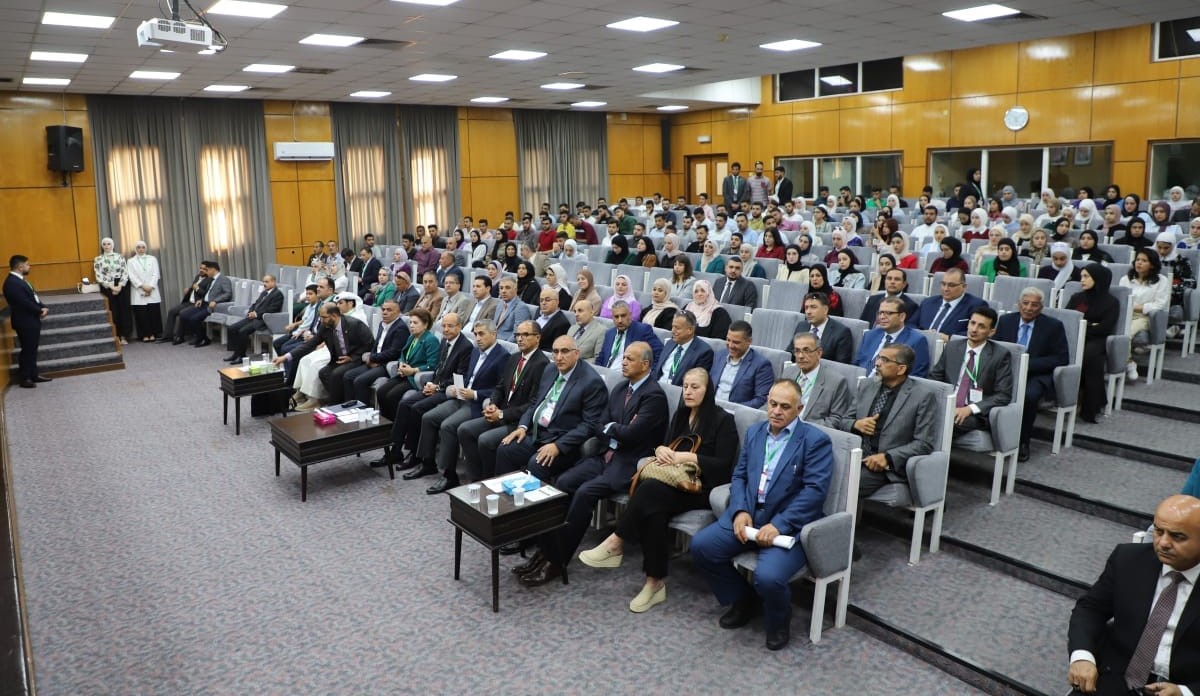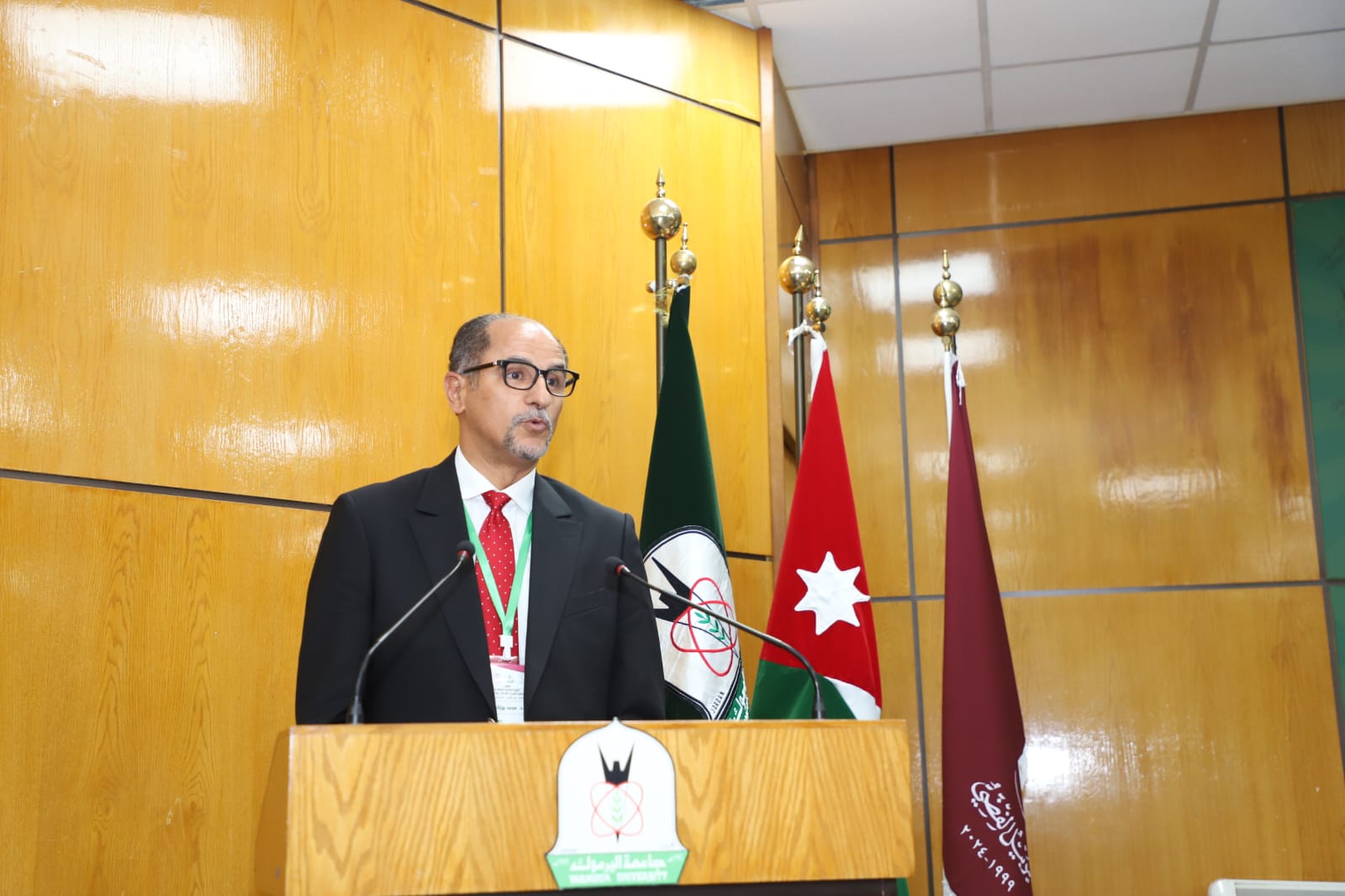
On behalf of the President of Yarmouk University, the Vice President for Academic Affairs, Professor Mousa Rababah sponsored launching the "Fourth Industrial Revolution from a Legal Perspective: Challenges and Solutions" conference, which was organized by the Faculty of Law, with the participation of researchers and lawyers from seven Arab countries. Rababah said that the Fourth Industrial Revolution put the labor market to the test setting humans as its focus, which necessitates that humans possess renewable knowledge to be able to engage in an accelerated technological world, pointing out that the wheel of the Fourth Industrial Revolution is moving at a rapid pace and that its effects on institutions and governments are great. He then stressed the need for jurists to play their active role in facing the challenges and problems that emanate from employing the data of the Fourth Industrial Revolution, indicating that the legal framing of thorny issues resulting from the repercussions of the Fourth Industrial Revolution has become an important matter that cannot be overlooked. Moreover, Rababah stressed that Yarmouk has taken it upon itself to catch up with technological developments, taking the royal vision as its starting point with the aim of improving the educational process.
The Dean of the Faculty, Dr. Youssef Obeidat, stressed that the organization of this conference came to answer a set of questions, including: Does the current national and international legislative system fully and adequately cover the effects cast as a result of the Fourth Industrial Revolution? Are the traditional legal rules sufficient to face the data of the Fourth Industrial Revolution? Do we need to refine these rules and make them more compatible with these developments? He then pointed out that the term Fourth Industrial Revolution first appeared in 2016 at the World Economic Forum in Davos, Switzerland, where robotics, artificial intelligence, nanotechnology, biotechnology, the Internet of Things, three-dimensional printing and autonomous vehicles got addressed as the most prominent models of the Fourth Industrial Revolution. Obeidat also said that the Fourth Industrial Revolution has become an inevitable part of the reality of societies and a tangible phenomenon that no one can ignore, highlighting a set of challenges related to human rights, intellectual property rights, human body integrity, cybersecurity, and crimes resulting from the technologies of this revolution. Moreover, He stressed that the Faculty of Law maintains the covenant in dealing with topics dictated by developments in an attempt to consolidate legal culture as a life requirement in society.
The Dean of the Faculty of Legal, Economic and Social Sciences at Sidi Mohamed bin Abdullah University in the Kingdom of Morocco, Dr. Mohamed Bouzlafa, gave a speech on behalf of the participants in the conference, in which he praised the efforts of the Faculty of Law at Yarmouk University for organizing this conference, which addresses the problem of the relationship between the Fourth Industrial Revolution and all aspects of legal, administrative and moral life, where many experts from multiple fields of knowledge participate, including judges, diplomats, doctors, intellectuals, and jurists. Bouzlafa stressed the importance of discussing the topic of the Fourth Industrial Revolution from a legal perspective and its relationship with various fields of knowledge such as the judiciary, medicine, artificial intelligence, human rights, protection of intellectual property and personal data, and financial management.
However, the activities of the first day of the conference included two scientific sessions, the first was chaired by Dr. Youssef Obeidat, and it included a set of legal scientific papers. A member of the Constitutional Court, Judge Taghreed Hikmat, presented a paper entitled "Can Artificial Intelligence Replace a Judge in Court?" while the Dean of the Faculty of Medicine at the Jordan University of Science and Technology, Dr. Bashir Khasawneh, presented a paper entitled "Medicine and Artificial Intelligence", and Dr. Muhammad Bouzlafa presented a paper entitled
"The digital experience at the Faculty of Legal, Economic and Social Sciences of the University of Fez". In the second session, entitled "Legal Challenges Resulting from the Use of Fourth Industrial Revolution Technologies", which was chaired by the Deputy Dean of the Faculty of Law at Yarmouk University, Dr. Maha Khasawneh, Dr. Ahmed Rashid Al-Mutairi, from the Faculty of Commercial Studies in Kuwait, presented a paper entitled "The Role of Artificial Intelligence in Supporting the Governance of Public Joint Stock Companies". Dr. Ibrahim Kamel Al-Shawabkeh, from the United Arab Emirates University, presented a paper on "Legal Challenges for Issuing Administrative Decisions Using Artificial Intelligence Systems". Besides, a paper entitled "The extent of criminal responsibility of the manufacturer of the smart medical machine for the crimes resulting from it in the Jordanian and the Emirati laws" by Ms. Baraa Al-Qawasmeh and her coauthor from Yarmouk. In addition, Wajd Kifah Al-Qassab, from the companies of the Iraqi Ministry of Electricity, presented a paper entitled "The role of national and international institutions in educating individuals about the negative effects of the technologies of the Fourth Industrial Revolution”. Overall, 28 researchers, from seven Arab countries: Iraq, Morocco, Palestine, Kuwait, the UAE, the Sultanate of Oman in addition to Jordan, participated in the Conference.






